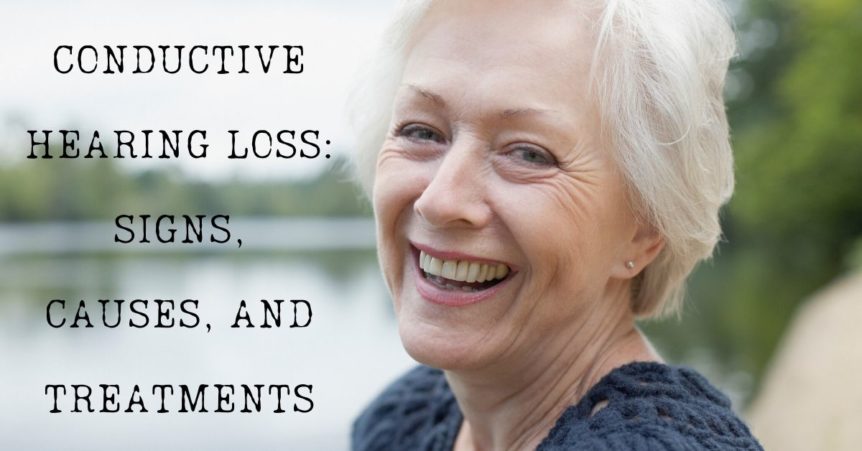Many people suffer from conductive hearing loss. This loss occurs when the passage of sound is partially or fully blocked. This can happen in either the middle ear or in the ear canal. The passage of any type of sound may be blocked because of blockages or damaged anatomical structures. This may happen in the middle ear, ear canal, or outer ear.
This is a result of any problem with delivering sound energy to the cochlea. The cochlea is the hearing part located in the inner ear. This can result from a blockage of your ear canal. You might also have a hole located in your eardrum. Another cause might be from problems in your ear as a result of three small bones. Finally, there might be fluid in the area between your cochlea and eardrum. The great thing is that most cases of treating hearing loss can offer significant improvement.
Symptoms of Conductive Hearing Loss
If you are suffering from conductive hearing loss there might be varied symptoms. This depends on the severity and exact cause. Some of the symptoms damaging your hearing health might be tenderness or pain in your ear, a drainage of the ear, muffled hearing, a sudden or steady loss of hearing, dizziness, or a “stuffy” sensation in the ear. Treating hearing loss is always an important part of maintaining your health.
Causes of Conductive Hearing Loss
Conductive hearing loss may be a result of a variety of reasons. One of these is earwax. It is normal for your body to produce earwax. However, in some situations, it can collect and totally block your ear canal. If this untreated hearing loss continues it will cause a problem. There is also the well-known swimmer’s ear. This can definitely cause a problem for your hearing health. It has a proper name known as otitis externa. As a result of water exposure, or cotton swab usage, this results in an infection in the ear canal. Untreated hearing loss may cause further health problems.
Another cause is foreign body in the ear. This is more frequent in children. They sometimes place objects in their ear like peas, beads, or whatever. In an adult, this can result from a bug getting inside the ear. Bony lesions are another reason. This often results from swimming in cold water. These are non-cancerous growths of bone in the ear canal.
Aural atresia, which is a defect of the external ear canal is usually observed at birth. It is called microtia which is a defect of the structure of the outer ear. Other causes are an infection of the middle ear fluid and eardrum problems.
An untreated hearing indicates you need visit a hearing health specialist. A specialist will give you a specific diagnosis. S/he will also discuss the possible treatment options. There is a possibility that one of these options might be a surgical procedure.
Treating Hearing Loss
During your initial appointment, one of the most important things that will take place is a hearing test to determine the degree of your lost hearing. This will be given by one of our professional hearing health providers at Neighborhood Hearing Aid Center.
Aside from determining the degree of your loss s/he will also determine if it is conductive, sensorineural, or a combination of both of these. After evaluating your hearing test results, we will then offer various recommendations for possible options for treatment.
Your treatment options might include an observation with additional hearing testing during a follow-up visit. Or, you might be evaluated and fitted for a hearing aid or some other assistive listening device. If you are a student you might be offered preferential seating in your classroom. In other cases, you might receive surgery to solve the loss of hearing or to implant some type of hearing device.
If you are suffering from any of the following you may potentially require surgery. These include bony lesions, aural atresia, cholesteatoma, otitis media, severe retraction of the tympanic membrane, otosclerosis, damage to the middle ear bones, or a hole in the eardrum. Different types of loss can be treated with hearing aids or a hearing device which is implanted.
Neighborhood Hearing Aid Center
If you’ve noticed changes in your hearing and struggle with communication, contact us today. We provide comprehensive hearing health services and we’re here to help!

